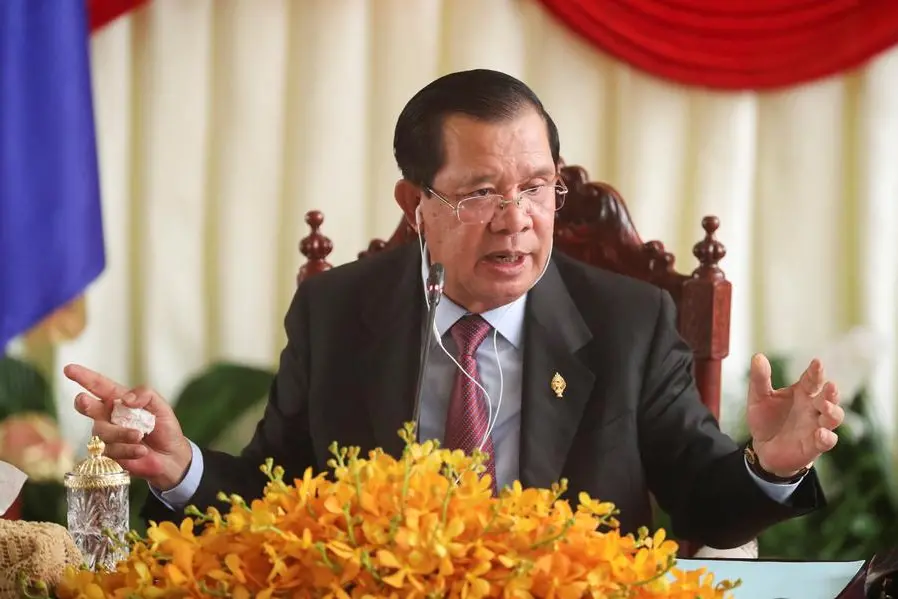PHOTO
Cambodia's newly elected parliament endorsed four-star military general Hun Manet as prime minister on Tuesday, completing a historic transfer of power in a fast-changing country led by his father Hun Sen for nearly four decades.
The Western-educated Hun Manet, 45, had the overwhelming backing of a National Assembly dominated by his Cambodian People's Party (CPP), following an election in July that was dismissed abroad as a sham that lacked any viable opposition.
Hun Manet told lawmakers that election was free and fair and promised he would implement the CPP's policies and ensure peace, economic growth, better infrastructure, and wage increases for civil servants and garment workers.
He lauded his father and the older generation of politicians for steering Cambodia from years of devastating civil war to an era of peace, growth and better living for its people.
"The bright wisdom, diverse experiences, pragmatism, and the levels of adeptness, intelligence and savviness that (Hun Sen) and excellencies leaders have displayed ... is a mastery of the art of leadership, one that we as the future generation can only aspire to," Hun Manet said in a speech.
Hun Sen, 71, a former Khmer Rouge guerrilla and self-styled strongman has pledged to remain in politics in other roles for at least a decade, in what experts see as a move to fend off potential challenges to his son.
One of the world's longest-serving leaders, Hun Sen has expressed desire to become president of the upper house Senate next year.
Until Tuesday's address to parliament, little was known about Hun Manet's vision for Cambodia, a country of 16 million people, few of whom have lived under a leader other than his father.
A graduate of the West Point military academy in the United States, Hun Manet rose fast through the ranks of Cambodia's armed forces and has served as head of counter-terrorism, deputy chief of his father's bodyguard unit, army chief and deputy military commander.
He is also highly educated, with a masters degree from New York University and a doctorate from Britain's Bristol University, both in economics, in stark contrast to his father, who had no formal education.
Hun Manet's first months in office will be watched by major powers for signs of whether he favours a more liberal approach and improving Cambodia's strained ties with the West, or plans to keep the authoritarian status quo of his father and remain in China's sphere of influence.
(Writing by Martin Petty; Editing by Stephen Coates and Michael Perry)





















